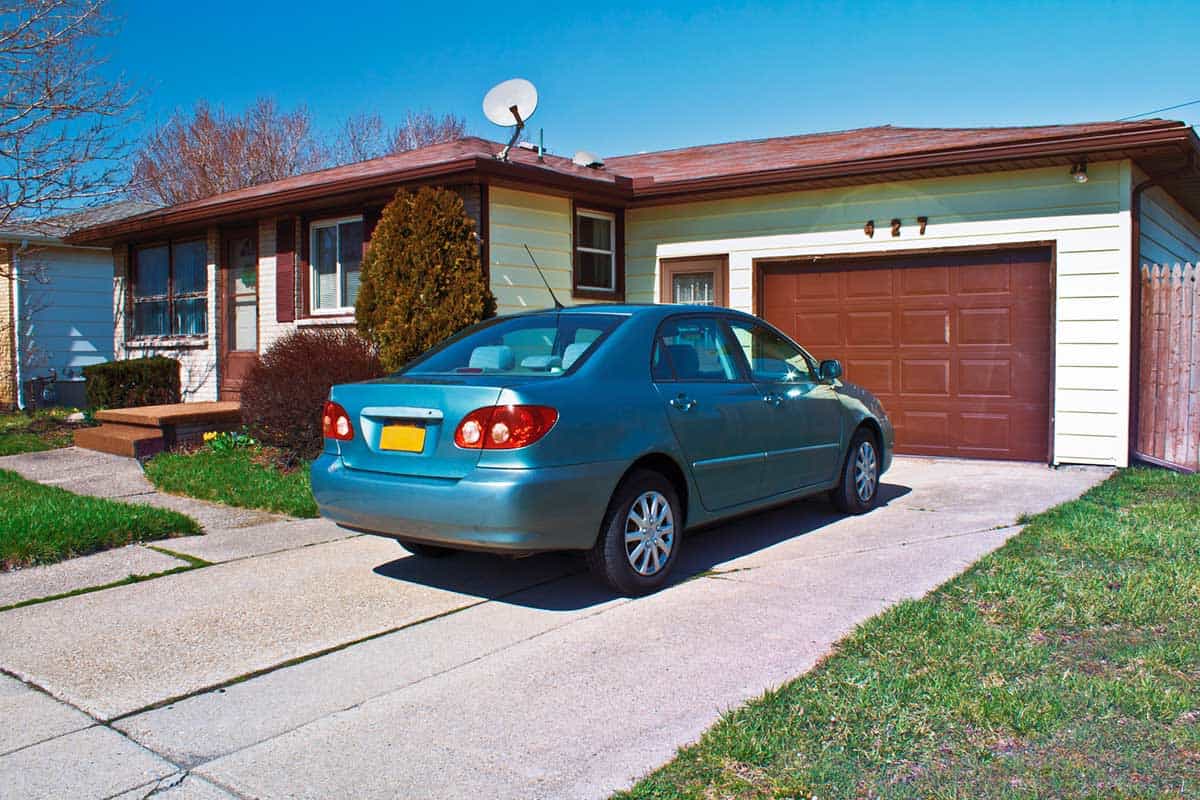This page may contain affiliate links. If you click and buy, we might get a small commission at no cost to you.
When your neighbor doesn’t stop parking in your driveway, your first course of action should be to politely ask them to stop. If that doesn’t help, there are several countermeasures you can take to deter them from doing it again. From No Trespassing signs to installing security cameras, you have options available to you.
How to Stop Your Neighbor From Parking in Your Driveway
1. Talking to Your Neighbor About the Issue
It can be incredibly frustrating to get home from work only to find your neighbor has parked their car in your driveway for the fifth time this week. Confronting them can also feel awkward, and it’s hard to know where to even start in a situation like this.
The key component of any type of relationship is good communication. If you’re having an issue with your neighbor, it’s important to voice your concerns and give them a chance to remedy their wrongdoing. You may find that there was a misunderstanding from a previous arrangement, or they simply lacked knowledge of a boundary you put into place.
On the other hand, simply talking to them may not be enough. If you find they continue to park in your driveway, even after you’ve set a clear boundary, you may need to take alternative actions.
2. Use Proper Signage to Deter Them From Parking in Your Driveway
A simple precautionary measure could be to invest in a few No Trespassing signs. If you choose to use this method, make sure to place the signs in a clearly visible area. If your neighbor continues to park in your driveway after putting those signs up, you can sue them for trespassing.
Keep in mind that this simple measure may not be enough and is more effective when paired with another method like installing security cameras or placing traffic cones at the edge of your driveway.
3. Install Security Cameras Outside of Your Home
Installing an outdoor security camera can come in handy in a few ways in this situation. If you’ve already created the boundary with your neighbor and they choose to ignore it, installing security cameras may make them hesitate to do it again.
In addition to that, security cameras can also provide you necessary documentation if you end up needing to take them to court over the matter. Outdoor security cameras are also excellent security measures for other issues that may happen in your neighborhood.
4. Install a Fence or a Gate
A more drastic, but sometimes necessary, measure is installing a fence or a gate around your property. This will physically deter them from continuing to use your driveway. With that said, it may get annoying having to get out and unlock or lock your gate every time you leave and come home.
On the other hand, you could opt for a high-tech gate that can open and close automatically or by the push of a button.
5. Call the Police
For more serious situations where your neighbor won’t listen to you, police interference may be necessary. Because your driveway is part of your property as the homeowner, you can call law enforcement on the grounds of trespassing. When you call the police, you’ll need to give them as much detail as possible. These details include how long the problem has gone on, both you and your neighbor’s addresses, and any other pertinent information to the situation.
6. Send Them an Official Letter Through the Mail
If you want to avoid calling the police but your neighbor isn’t listening to you, consider sending them a demand letter through the mail. In this letter, you should include the reason why you’re sending it and what you want from them. In addition to that, you’ll also need to lay out future actions you will take if the issue continues.
An example letter would state that you’re contacting them in regards to the driveway issue. It would also state that if they don’t stop parking in your driveway, then you’ll take legal action.
7. Utilize Cones to Block Off Your Driveway
Installing a full fence or gate may not be feasible for everyone. If this relates to you, you could purchase some orange traffic cones and place them at the end of your driveway. Doing this will physically block your neighbors access to your driveway until you decide to remove the cones.
Some people choose to use road spikes in these situations, but cones are a safer option in case your neighbor wanted to retaliate through the legal system.
8. Have the Vehicle Towed if Necessary

If the vehicle is a hindrance, you have every right to get it towed. However, this will cost you money in some cases. With that said, being a member of some automotive organizations will give you a certain number of free local tows you can take advantage of. Additionally, cars that are illegally parked in residential areas are typically towed at no cost to you.
Before doing this, you should make sure the neighbor isn’t home or flat out refuses to move their vehicle.
9. Designate it a Tow Away Zone
You can also designate your driveway as a tow away zone. To do this, you need to call your city’s land surveyor to survey your driveway. The city department will then issue an official letter stating that it’s your drive.
You’ll need to send this letter to the parking authority who will come out and paint the lines for you. They’ll use yellow street paint to paint a marked off section reading “Tow Away Zone.” This method is rated to be very effective amongst many online communities.
Conclusion
When your neighbor won’t stop parking in your driveway, don’t fret. There are a number of actions you can take to fix the issue. From simple cones at the end of the driveway, to getting the city involved to paint your driveway, there’s a method for everyone.
With that said, you should always remember to start with communicating your boundary to your neighbor. In most cases, this will solve the issue on the spot.



